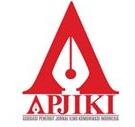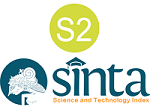Evaluating social media marketing in Afghanistan’s private Universities
Abstract
Background: Social media has become a significant part of our lives today. Students, in particular, use Internet media technologies to access information about their educational environments. Purpose: This study aimed to assess how private institutions in Afghanistan use social media for marketing purposes. Methods: The perspectives and experiences of noteworthy stakeholders in these universities were investigated using a qualitative research design by conducting in-depth interviews to explore the perceptions and experiences of key stakeholders in private universities in Afghanistan. Thematical analysis was used to examine the data gathered. Results: Social media is crucial for attaining marketing objectives and increasing brand recognition. According to the interviews, social media sites like Facebook, Twitter, Instagram, and LinkedIn are valuable tools for promoting higher education programs and interacting with prospective students. The findings also show that Facebook in Afghanistan, is the most widely used social media sites. Conclusion: Social media has become an essential marketing tool for Afghanistan’s private education institutions. Albeit poor and expensive internet access, which have significantly reduced the effectiveness of social media marketing. The importance of institutions in recognizing their target market, creating efficient social media strategies, and allocating funds wisely, are paramount in order to fulfill the goals. Despite these difficulties, participants saw social media as a valuable tool for promoting higher education programs and connecting with prospective students. Implications: Private education institutions in Afghanistan should recognize the significance of social media as an essential marketing tool despite the challenges of poor internet access and high costs and focus on understanding their target market, developing efficient social media strategies, and allocating resources effectively.
Keywords
Full Text:
PDFReferences
Adam, R., & Gunarto, M. (2021). The influence of promotion in social media and word of mouth on the decision on selection of study programs at private Universities.
Ali, A. M., Shamsudin, M. F., Ali, A. M., Ishak, M. F., & Esa, S. A. (2021a). The use of social media application as a factor influencing the students’ decisions-making to enrol at private higher education institutions using smart PLS. Journal of Information Technology Management, 13(3), 187–195. https://doi.org/10.22059/JITM.2021.83237
Assimakopoulos, C., Antoniadis, I., Kayas, O. G., & Dvizac, D. (2017). Effective social media marketing strategy: Facebook as an opportunity for universities. International Journal of Retail and Distribution Management, 45(5), 532–549. https://doi.org/10.1108/IJRDM-11-2016-0211
Barua, B., & Zaman, S. (2019). Role of social media on brand awareness in private Universities of Bangladesh. International Journal of Business and Management Research. www.tjprc.org
Creswell, J. W. (2014). Research design. Sage Publication
Dhaliwal, M. S., Mittal, A., Aggarwal, A., & Chand, P. K. (2019). Determining the factors affecting the selection of private universities and colleges in indian context: A structural equation modeling approach. Jour of advanced research in dynamical and control systems. 11(8), 2579-2590
Etikan, I. (2017). Sampling and sampling methods. biometrics & biostatistics. International Journal, 5(6). https://doi.org/10.15406/bbij.2017.05.00149
Gunawan, I., Tjong, F, S., & Silaswara, D. (2020). Digital marketing study, through instagram media case study of private Universities in the Tangerang Region. Techno-Economic, 18(2).
Haand, R., & Shuwang, Z. (2020). The relationship between social media addiction and depression: a quantitative study among university students in Khost, Afghanistan. International Journal of Adolescence and Youth, 25(1), 780–786. https://doi.org/10.1080/02673843.2020.1741407
Hossain, S., & Sakib, N. (2016). The Impact of Social Media Marketing on University Students’ Brand Loyalty. International Journal of Marketing and Business Communication , 5(3), 1-7.
Islam, M., & Habiba, U. (2015). Use of social media in marketing of library and information services in Bangladesh. DESIDOC Journal of Library & Information Technology, 35(4).
Kaur, S., Hansaram, H. R., Loy, C. K., Xin, L. Q., Hwee, C. S., Mokhtar, N. A., Yong, M., & May, Z. (2022). examining social media marketing and brand engagement among pre-school parents in Malaysia. Asian Journal of Social Science Research, 4(2).
Keke, M. E. (2022). The use of digital marketing in information transport in social media: The example of Turkish companies. Transportation Research Procedia, 63, 2579–2588. https://doi.org/10.1016/j.trpro.2022.06.297
Kingsley Okoroafor, C., Cecilia Offor, C., Patricia Ike, C., & Author, C. (2022). Use of social media as a marketing strategy for promoting effective library Service Delivery in Two Private Universities in Enugu State. Niger Delta Journal of Library and Information Science NDJLIS, 3(1).
Noori, A. Q., Orfan, S. N., Akramy, S. A., & Hashemi, A. (2022a). The use of social media in EFL learning and teaching in higher education of Afghanistan. Cogent Social Sciences, 8(1). https://doi.org/10.1080/23311886.2022.2027613
Omar, S. S., Sarawati, S., Johar, H., & Ariffin, Z. Z. (2016). The Influence of Casino Architecture and Structure on Problem Gambling Behaviour: An Examination using Virtual Reality Technology. Proceeding.
Orfan, S. N. (2021). Political participation of Afghan Youths on Facebook: A case study of Northeastern Afghanistan. Cogent Social Sciences, 7(1). https://doi.org/10.1080/23311886.2020.1857916
Othman, R., & Othman, R. (2014). Higher education institutions and social performance: evidence from public and private universities.
Pardiyono, R., Suteja, J., Dyah Puspita, H., & Juju, U. (2022). Dominant factors for the marketing of private higher education. Canada. Decision Science Letters, 11, 137–146. https://doi.org/10.5267/dsl.2021.12.002
Permatasari, H. P., Erlangga, D., Harlena, S., & Chandra, R. (2013). Effect of social media on website popularity: differences between public and private universities in Indonesia. World of Computer Science and Information Technology Journal, 3(2).
Salih Alnaser, A., Al-Shibly, M. S., Alghizzawi, M., Habes, M., Ahmad Al-Gasawneh, J., Ali Elamaireh, far, & Zainal, A. S. (2020). Impacts of social media and demographical characteristics on university admissions: Case of jordanian private universities. Journal Of Archaeology Of Egypt/Egyptology, 17(7).
Sangi, F. (2021). Examining the factors influencing social media adoption in public sector organizations: empirical evidence from national radio television of Afghanistan. Kardan Journal of Economics and Manangement Sciences. https://doi.org/10.31841/kjems.2021.103
Sundarraj, B., Kaliyamurthie, K. P., & Udayakumar, R. (2016). Marketing opportunities with social networks. Journal of Chemical and Pharmaceutical Sciences, 9(2), E326–E330. https://doi.org/10.5171/2011.409860
Williams, D. L., Crittenden, V. L., Keo, T., & Mccarty, P. (2012). The use of social media: An exploratory study of usage among digital natives. Journal of Public Affairs, 12(2), 127–136. https://doi.org/10.1002/pa.1414
DOI: https://doi.org/10.24198/prh.v8i1.47690
Refbacks
- There are currently no refbacks.
Copyright (c) 2023 Abdul Qayoum Safi, Yanti Setianti, Abdulmanan Sapi

This work is licensed under a Creative Commons Attribution-NonCommercial-ShareAlike 4.0 International License.
PRofesi Humas Indexed by:



 Editorial Office of PRofesi Humas: Faculty of Communication Science, Universitas Padjadjaran
Editorial Office of PRofesi Humas: Faculty of Communication Science, Universitas PadjadjaranJl. Raya Bandung-Sumedang Km. 21 Jatinangor, Sumedang, Indonesia 45363
WA: +6282316731181 (Chat Only) Telephone: +62227796954
Faxmile: +62227794122
Email: jurnal.profesihumas.fikom@unpad.ac.id
PRofesi Humas Supervised by:

 View My Stats
View My Stats








